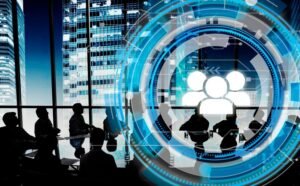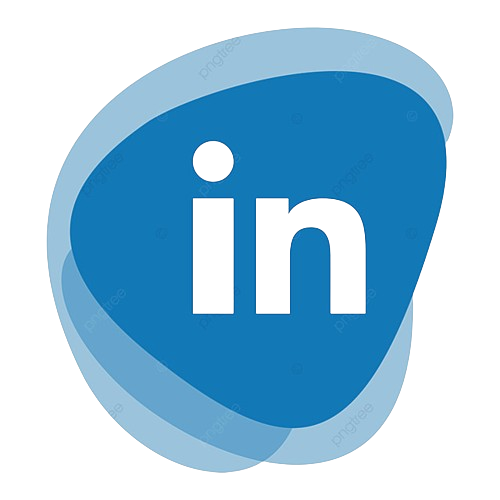
Enhancing Human Resources with Machine Learning
Machine Learning (ML) offers HRTech a new way to manage those humans; here’s how it changes the human experience in company settings. The world of ML-driven solutions is touching all aspects from recruitment, where they help in making decisions on the candidate to employee engagement tools that automate multiple processes thereby improving efficiency. Here are five ML-based innovations that are changing the HR landscape.
Intelligent Recruitment: Streamlining Talent Acquisition
Hiring the Right Talent is a major Challenge HR Faces. As a result, machine learning algorithms are speeding up and supporting the decision process by scanning resumes, balancing applications, and sometimes even leading preliminary interviews. Platforms such as HireVue and Pymetrics also utilize machine learning (ML) to determine potential “culture fit” based on these gamified assessments of soft skills and cognitive ability.
Besides minimizing bias, these tools save someone the time it takes to scan a stack of hundreds of applications. ML models use historical hiring data to predict the success of candidates in a specific role. Such precision prevents high turnovers and improves job satisfaction as a company can hire the right person for the job.
Employee Retention Models: Predicting Attrition Risks
Reversely, acquisition without retention is equally ineffective. ML-based models of employee retention look into performance metrics and other engagement surveys that predict the departure of an employee. Tools such as Workday Adaptive Planning can help predict trends pointing to dissatisfaction or disengagement.
For example, ML models can identify patterns in the work routine of employees’ productivity or declining participation from the employees and alert potential burnout. They could then alert and suggest avenues to curving attrition. The HR teams can therefore develop individual interventions to avoid attrition in its later stages.
Personalized Learning and Development
Modern workplaces require continuous learning; therefore, ML is revolutionizing how companies approach their curriculum delivery. Personalized learning platforms like Degreed and Cornerstone OnDemand analyze the performance data, skills, and career goals of employees to recommend customized learning paths.
Such platforms do not provide generic training programs but instead build a dynamic curriculum for each employee, thereby ensuring relevance and engagement. Furthermore, the ML algorithms track progress and recommend additional resources or courses based on the learning behavior of the employee. This is not only enhancing the skill development of the individual but also making employee growth coordinate with organizational objectives.
Automated Performance Management
The outcomes of traditional performance reviews are subjective and, thus sometimes biased and misinformed. Objectivity is brought into the review process through solutions such as Betterworks and 15Five, as they use the analysis of current real-time project outcomes, peer reviews, and communication patterns to analyze data.
These tools are to provide continuous feedback, not confining appraisal into once a year. With the help of identifying trends and key performance indicators, they arm managers with actual actionable insights. For instance, an ML model might highlight an employee who’s consistently exceeded expectations at specific tasks, allowing HR to promote them faster. Similarly, it might help highlight areas that need improvement, thus fostering a culture of growth and transparency.
Sentiment Analysis for Employee Engagement
Understanding employee sentiment is important to help promote a positive workplace environment. ML-based sentiment analysis tools, such as Qualtrics and CultureAmp, analyze the text information from surveys, emails, and online internal communication platforms to measure the morale of employees.
The tools pick up on subtle cues in the language and tone, which indicates problems that might otherwise not be picked. For instance, these could be present use of negative phrases in employee feedback concerning the management practices. Equipped with such information, HR teams can easily proactively respond to such problems leading to a betterly engaged and satisfied workplace.
The Broader Impact of ML in HRTech
Besides efficiency, ML-based solutions in HRTech bring inclusivity, fairness, and precision to processes that were mainly dependent on human judgment. The percentage relief from routine tasks for the HR teams would enable them to focus on strategic initiatives that are directly aimed at fitting into the business goals. In addition, these solutions also avoid intuition and better accountability and transparency based on evidence through these solutions.
However, the use of ML within HR is not without difficult challenges. Thoughts come to mind regarding data privatization, bias in algorithms, and continuous model training when maximizing the potential of ML within the firm. Firms have to walk a tightrope where more technological advancements have to fit into ethical and regulatory standards.
Conclusion
HRTech is getting a shot in the arm from machine learning enabling organizations to truly unlock the potential of their people. From recruitment optimization to employee retention and personalized learning experiences, there is no doubt that ML has been an invaluable partner in crime for HR practitioners. With the ongoing advancement in technology, these solutions will become smarter and push the future of work to greater innovation and efficiency. As businesses aspire to be increasingly competitive in a market that is quickly becoming centered around talent using ML-based HR tools is not optional, it has become mandatory.






